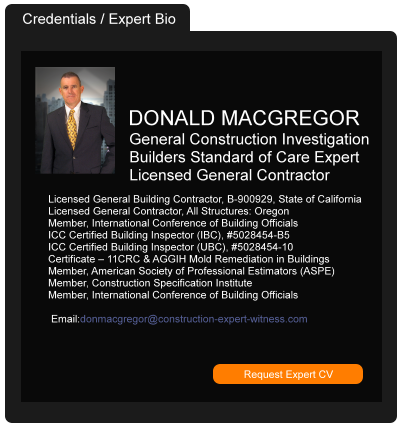Recent Federal Court Decision Favors Class Action Defendants
October 26, 2020 —
Amber Karns & Dan Pipitone - Construction ExecutiveThe commercial construction contracting and subcontracting industry in general is unique under the law for industry professionals, as they’re typically limited to wage and hour litigation under provisions of the Fair Labor Standards Act.
The majority of FLSA cases seek class action status or collective classification, while other FLSA litigation is initiated by individuals seeking damages. For the former, past and current employees can opt into class action litigation and seek collective damages against a construction company. The looming financial burden of class action or collective litigation against construction companies consume time, money and resources to the extent it’s often advisable for Defendants to negotiate an unfair settlement.
Yet, thanks to a recent federal court decision on March 27, 2020, the legal maneuvering behind unreasonable Plaintiff demands may soon be counter-balanced by the class action Defendants’ right to due process review. A recent legal opinion in a recent FLSA case has potentially wide-ranging implications for Defendant employers mired in future class action litigation. Moreover, as the FLSA applies to all employers, this decision potentially applies to all ownership groups representing the commercial construction industry, extending to partners, contractors and subcontractors.
Reprinted courtesy of
Amber Karns & Dan Pipitone, Construction Executive, a publication of Associated Builders and Contractors. All rights reserved.
Mr. Pipitone may be contacted at dpipitone@munsch.com
Ms. Karns may be contacted at akarns@munsch.com
Read the court decisionRead the full story...Reprinted courtesy of
Georgia Supreme Court Addresses Anti-Indemnity Statute
October 21, 2019 —
David R. Cook - AHC Construction and Procurement BlogIn prior blog posts, we addressed Georgia’s anti-indemnity statute. One of the posts addressed the statute in the context of an electric utility easement near an airport. That case made its way to the Supreme Court Georgia, which provided some additional clarity to the statute. Milliken & Co. v. Georgia Power Co., — Ga. –, 829 S.E.2d 111 (2019).
When a plane crashed and several passengers and crew died or were injured, their representatives sued several defendants, including a nearby plant owner, Milliken & Company (“Milliken”), based on claims that transmission lines on Milliken’s property were too close to the runways, were too high, and encroached on the airport easements. Milliken cross claimed against Georgia Power Company (“GPC”). Milliken’s claim was based on an easement it granted to GPC, which required GPC to indemnify it for any claims arising out of GPC’s construction or maintenance of the transmission lines.
On appeal, the Supreme Court considered whether the clause was unenforceable under O.C.G.A. § 13-8-2(b). In general, “a party may contract away liability to the other party for the consequences of his own negligence without contravening public policy, except when such agreement it prohibited by statute.” Id. at 113 citing Lanier at McEver v. Planners & Eng’rs Collaborative, 284 Ga. 204, 205 (2008). As one such statute, O.C.G.A. § 13-8-2(b) applies when an indemnification provision (i) “relates in some way to a contract for construction, alteration, repair, or maintenance of certain property” and (ii) “promises to indemnify a party for damages arising from that own party’s sole negligence.” Id. at 114 (internal punctuation omitted).
Read the court decisionRead the full story...Reprinted courtesy of
David R. Cook, Autry, Hall & Cook, LLPMr. Cook may be contacted at
cook@ahclaw.com
Court Grants Insurer's Motion for Summary Judgment After Insured Fails to Provide Evidence of Systemic Collapse
April 15, 2024 —
Tred R. Eyerly - Insurance Law HawaiiWith the insurer conceding that there was evidence of potential collapse at portions of eight specific building locations, the court granted the insurer's motion for partial summary judgment in determining no additional buildings suffered from collapse. Exec. 1801 LLC v. Eagle W. Ins. Co., 2024 U.S. Dist. LEZXIS 5923 (D. Or. Jan. 11, 2024).
Executive 1801 owned a group of six buildings with eighty-six residential units. The court previously granted partial summary judgment on Executive 1801's rain damage claim, leaving only claims regarding collapse. Eagle insured "the property for direct physical los or damage to Covered Property . . . caused by or resulting from any Covered Cause of loss." The policy further provided, "We will pay for direct physical loss or damage to Covered Property, caused by collapse of a building or any part of a building insured under this policy, if the collapse is caused by . . . hidden decay."
Read the court decisionRead the full story...Reprinted courtesy of
Tred R. Eyerly, Damon Key Leong Kupchak HastertMr. Eyerly may be contacted at
te@hawaiilawyer.com
Kentucky Supreme Court Creates New “Goldilocks Zone” to Limit Opinions of Biomechanical Experts
July 24, 2023 —
Aimee E. Muller - Lewis BrisboisLexington, Ky. (June 26, 2023) – In a recent decision, the Kentucky Supreme Court placed stricter limitations on the opinions that biomechanical engineers may offer at trials in Kentucky courts. Specifically, the published opinion issued in Renot v. Securea, Supreme Ins. Co., 2023 Ky. LEXIS 163, recognizes a new space for the testimony of biomechanics experts – “The Goldilocks Zone.”
Where is the Goldilocks Zone?
The Goldilocks Zone is a perfect place in which the proffered testimony is neither too specific such that it wanders into the realm of medical causation, nor too general such that it fails to help a lay jury. Specifically, a biomechanical engineer’s expert testimony must be limited to the forces generated by the subject collision, the generally anticipated responses of a hypothetical person’s body to those forces, and the range of typical injuries resulting from such forces. Moreover, following Renot, a biomechanical engineer’s proffered opinions no longer may enter into the realm of diagnosing a specific medical condition associated with a traumatic injury. Instead, the question of whether a trauma actually caused or exacerbated a plaintiff’s injuries falls solely within the purview of a medical doctor.
Read the court decisionRead the full story...Reprinted courtesy of
Aimee E. Muller, Lewis BrisboisMs. Muller may be contacted at
Aimee.Muller@lewisbrisbois.com
Surveys: Hundreds of Design Professionals See Big COVID-19 Business Impacts
April 27, 2020 —
Bruce Buckley & Debra K. Rubin - Engineering News-RecordAs more states, counties and cities call on non-essential businesses to shut down to help ease the effects of the coronavirus pandemic, design professionals already see major workload impacts from the economic slowdown, according to three new association surveys of members and one of CEOs by a financial consulting firm.
Reprinted courtesy of
Bruce Buckley, Engineering News-Record and
Debra K. Rubin, Engineering News-Record
Ms. Rubin may be contacted at rubind@enr.com
Read the full story... Read the court decisionRead the full story...Reprinted courtesy of
How Will Artificial Intelligence Impact Construction Litigation?
September 12, 2023 —
Patrick McKnight - The Dispute ResolverIn the first half of 2023, artificial intelligence (“AI”) caught the public’s imagination. Attorneys have not been immune from the fever-pitch of commentary regarding the possible applications. While early adopters have had varying degrees of success, commentators have proposed various potential impacts on construction projects and disputes. This article discusses potential areas where AI can assist in preventing and resolving disputes from the pre-bid stage through project completion and close-out.
What is AI?
Artificial intelligence entered the popular zeitgeist accompanied by both optimistic and pessimistic predictions about the future. Internet searches on AI exploded in December 2022, reflecting a rapid and widespread public interest in the topic. The term “AI” itself is often loosely used to refer to a machine or computer software with the ability to conduct machine learning.[1] Whereas “automation” is the simple process of computing inputs, artificial intelligence refers to the ability to learn without additional programming from a human being. Now, increased computing power is finally helping some of the potential applications of this technology come into focus. Nonetheless, artificial intelligence is still maturing and is subject to “hallucinations” where the technology essentially generates erroneous nonsense.
Read the court decisionRead the full story...Reprinted courtesy of
Patrick McKnight, Fox Rothschild LLPMr. McKnight may be contacted at
pmcknight@foxrothschild.com
Courthouse Reporter Series: The Bizarre Case That Required a 117-Year-Old Expert
December 04, 2023 —
Todd Heffner & Di'Vennci Lucas - The Dispute ResolverA recent decision by the Georgia Court of Appeals, Munro v. Georgia Department of Transportation, highlights how overly specific and inflexible rules of evidence can create peculiar results.
Munro involved a dispute over the design of a Georgia intersection. No. A23A0404, 2023 WL 4194716 (Ga. Ct. App. June 27, 2023). The plaintiff alleged that the defendant improperly designed the intersection, never corrected that improper design, and failed to properly maintain the intersection. These claims were dismissed for a very odd reason: the plaintiff’s expert witness wasn’t old enough.
The case arose from a car accident. A vehicle in which the plaintiff Munro was a passenger collided with a tractor trailer crossing an intersection. Munro sued the Georgia Department of Transportation (DOT) for negligently designing, maintaining, and inspecting the intersection. The DOT filed a motion to dismiss for lack of subject matter jurisdiction on the ground of sovereign immunity and a motion to exclude the testimony of the Munros’ expert witness, among other motions. The trial court dismissed the case in full on the sovereign immunity ground and denied the other motions as moot. The Munros appealed.
Reprinted courtesy of
Todd Heffner, Troutman Pepper and
Di'Vennci Lucas, Troutman Pepper Read the court decisionRead the full story...Reprinted courtesy of
Mr. Heffner may be contacted at
todd.heffner@troutman.com
Pennsylvania Supreme Court Rules that Insurance Salesman had No Fiduciary Duty to Policyholders
July 19, 2017 —
Austin D. Moody - Saxe Doernberger & Vita, P.C.On June 20, 2017, the Pennsylvania Supreme Court ruled that a life insurance salesman had no fiduciary duty to his customers where the customers retained decision-making authority regarding which policies to purchase. In Yenchi v. Ameriprise Fin., Inc., the Court returned a 4-2 verdict, overturning the lower court’s finding that it was possible that a fiduciary relationship existed between the parties.
The suit arose from a series of transactions between Eugene and Ruth Yenchi and Bryan Holland, a financial advisor for IDS Life Insurance Corporation.
The relationship began when Holland cold-called the Yenchis and asked to meet with them regarding their “financial stuff.” For a fee of $350, Holland met with the Yenchis on several occasions and counseled them regarding their insurance needs. On Holland’s advice, the Yenchis cashed out several existing polices and purchased a whole-life policy for Mr. Yenchi and a deferred variable annuity in Mrs. Yenchi’s name.
Read the court decisionRead the full story...Reprinted courtesy of
Austin D. Moody, Saxe Doernberger & Vita, P.C.Mr. Moody may be contacted at
adm@sdvlaw.com


































































